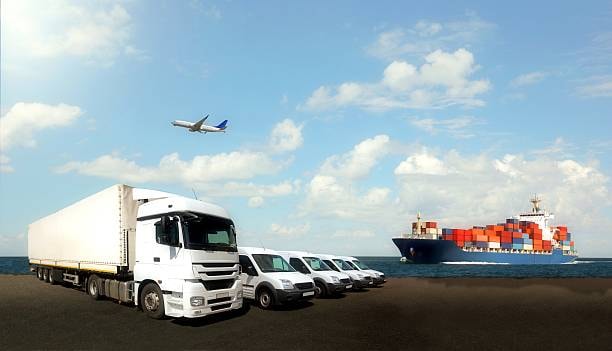
The operation of businesses in the modern interconnected global economy has brought about the complicated problem of transporting goods across international borders at an efficient and cheap cost, making it essential to partner with a freight forwarding company . Here, freight forwarders come in handy as very necessary members of the supply chain team. Being aware of what the freight forwarder is and what they do can largely influence the success of your business in terms of international trade international freight forwarders.
Freight forwarder is a specific logistics service provider, which works as the intermediary between the business and multiple transportation services british international freight association. They organize and ease movement of goods at the initial point up to the final point and they deal with the logistical procedures of international transport that most businesses will be floored by. These individuals are the mainstay or central point of global trade, and they make sure that the products get to their markets safely, at the right time, and within the required laws.
What a professional freight forwarder has to offer can be seen at GWT Worldwide (Shenzhen Guanwutong International Freight Forwarding Co., Ltd.). We have significant presence both in China and the global market since we are one of the most popular international ocean freight forwarders, providing logistics services that concern the supply chain solutions, cross-border e-commerce logistics, and freight forwarding across the globe. Our integrity and sustainable track record of providing affordable, accurate and personalized logistic services has earned us reputable status among businesses in the world that found global trade solutions with us.
Understanding the Core Functions of Freight Forwarders
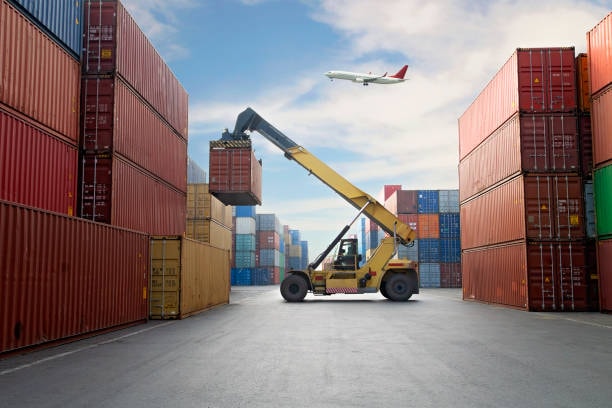
The various essential roles of freight forwarders organise go way beyond coordination of transportation. Their main task is to perform the duties of logistics producers who coordinate the whole process of shipping endtoend. This is the process of route planning, selection of carriers, documentation aspects and regulatory aspects of compliance.
The sophistication of international shipping demands the knowhow of other means of transportation that can be used including ocean freight, air transport, sea transport, rail and ground cargo. Freight forwarders use their vast expertise on the international shipping systems to establish the most effective as well as cost effective destination of each shipment. They also deal with the carriers on behalf of their clients whereby they may end up getting a better deal because of their purchasing volume power and the relationships they have developed over the years.
The management of documentation is also an important activity since documents necessary to international shipment are numerous forms, certificates, and declarations. Freight forwarders also ensure that no paper work is missed and thus when the goods are required at the borders or at customs stations this saves a lot of costs due to missed time delays. They have experience in customs regulations and know how to have their company pass through the maneuver of international trading laws and restrictions on imports and exports, and document requirements that differ depending on the country of destination and the type of commodity involved.
Managing risks is also their mandate, making the clients aware of the risks that may occur during shipping and how to avoid them by ensuring adequate cargo insurance, timing insurance, the packaging to be used and contingency planning to counter any of the risks. This all-encompassing method in ensuring the management of logistics enables business to dedicate time on their core activities and leave their shipping matters to professionals.
Essential Services Provided by Professional Freight Forwarders
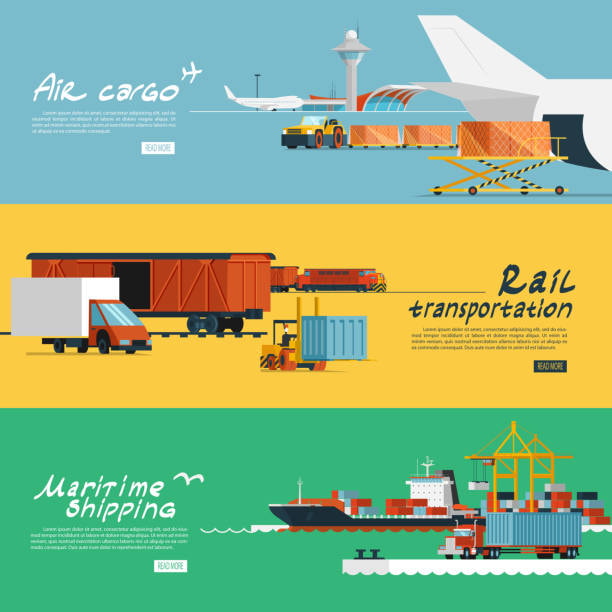
The contemporary freight forwarders present a broad range of services to meet all the demands of international logistics. The air freight services allow fast freight of sensitive durations as well as making use of the airline systems around the world to deliver the products within a short period of time, in collaboration with various shipping companies . Such services are most useful with high value items or perishable items or when there is a tight deadline in the delivery of the products.
International trade handled by sea freight services constitutes the majority of international trade transactions, and provides cost effective freight services to goods that are delivered in bulk and do not need delivery urgently. Freight forwarders handle full container loads (FCL) as well as less-than-container loads (LCL), selecting ideal shipping costs according to quantities of the shipments and requirements of urgency, ensuring they reach their final destination efficientl .
Customs clearance is another important aspect since the freight forwarders are customs brokers who are qualified to carry any export or import activity. They also prepare and present necessary documents, estimate duties and taxes, and facilitate with customs agency with the aim of making clearances easy, often through freight consolidation for cost efficienc . The experience is priceless to companies, which are not familiar with the country-specific requirements or with complicated regulatory environment.
Warehousing and distribution services are also included as freight forwarder tasks, which allow the company to cover domestic freight transportation, storage, and inventory management as well as final mile delivery organization. A lot of the current freight forwarders are also owners of warehouses which are set up at strategic locations near the important ports and airports and have the ability not only to give the clients the ability to store and get a flexible storage but also have value added services like packaging, labeling and a quality check inspection services.
Our main services at GWT Worldwide include air freight, air freight, China, European Railway Transport, international express and courier services, customs clearance and warehousing as well as Amazon FBA shipping and labeling services. This wide range of services is what helps us to address the needs of clients in a wide range of industries as well as in diverse shipping requirements.
How Freight Forwarders Streamline International Trade
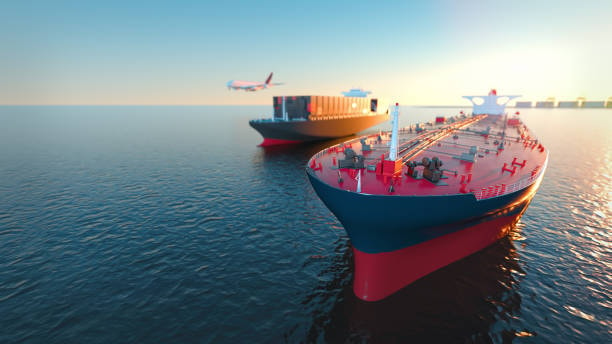
The nature of the international trade is very complex and there are various challenges which are best achieved by freight forwarders. This makes them single source points of contact to their businesses and they do not have to tie up with various carriers, customs brokers, warehouse operators, and other service providers separately. This centralisation really saves on administrational load and possible communication errors.
Freight forwarders are using advanced technology platforms in offering real time shipment tracking service, including tracking the movements of cargo ships automated services in documentation processing and integrated communication systems. Such technological features of the business sector allow companies to track their deliveries in the course of the trip and get timely information on possible delays or other complications that can occur.
Another major advantage is cost optimization where the freight forwarders use their industry connections and volume commitments to attract favorable charges, based on ratemaking, with the carriers and service providers. They are able to pool small loads together in order to earn better rates and can make suggestions regarding alternative rules to reach an area that may allow the saving of a dollar or two and can offer clear pricing formulae which allows businesses to better budget the amount of dollars that they are going to spend on shipping.
The regulating compliance expertise of freight forwarders is hard to overstress. The rules of international trade are in a state of constant change, and in order to keep track of those changes across the borders of different countries, various regions of the world, one will have to provide specific resources and practical expertise. To guarantee that all the needs fulfilled by their clients are related to their shipments, freight forwarders spend a lot of money operating compliance training and regulatory tracking.
Different Types of Freight Forwarding Services
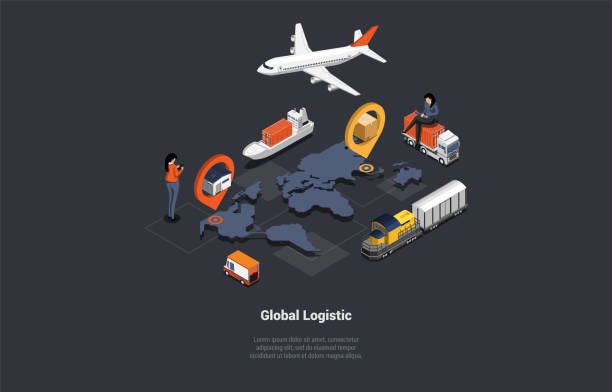
The freight forwarding business has different areas of specialisation that are meant to handle different needs of shipping and market segmentations. Freight forwarders Ocean freight forwarders specialize to a lesser extent in transportation by sea, building experience in containerized transport, port insurance, and maritime law. Such experts, particularly an ocean freight forwarder, are especially helpful of business shipping bulky assets or commodities where savings on cost is more important than on speed.
Air freight forwarding This type of freight forwarder is specializing in air shipping logistics, and is in touch with airline companies and is knowledgeable about specialized needs of air shipping. They are specialists in dealing with rush goods; luxurious products, and special cargo which needs special handling or conditions.
Multimodal freight forwarders provide the widest range of services by integrating different types of transport to develop the most efficient solutions to shipping. These providers are in a position to make shipments through international cargo shipping across air, sea, rail and over land with smooth transition in between as a strategy to balance cost, speed and reliability as per the needs of specific clients.
The project cargos deal with the oversized/overweight cargo or those that need unique transportation arrangements. These professionals organize complicated logistics processes which include use of special equipment, route survey and approvals to certain shipments that are beyond the pre-determined parameters of transport.
Ecommerce logistic experts have come up in response to the special requirements of online retailers especially those who are engaged in cross selling. Such providers provide the services according to the demands of e-commerce such as small parcel consolidation, returns management, and integration with such selling platforms as Amazon FBA.
Benefits of Working with Experienced Freight Forwarders
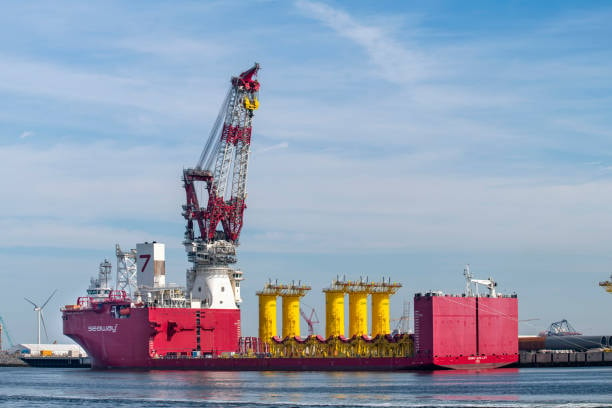
A close collaboration with efficient freight forwarding agents provides a series of significant benefits, not purely transportation related. Probably the most direct advantage is that it saves cost since the freight forwarders are able to use the relationships and volume commitments to get better rates than the individual firms would be able to accomplish alone. Their economies of scope, shipment optimization, routing, and even negotiation of favorable rates are directly reflected into cutting shipping prices of their customers.
The cost savings are also enormous, but the time-saving gains are just as important since freight forwarders manage all the dimensions of shipping organization so that the businesses can concentrate on their main workflows rather than logistics support. The experience they have in relation to documentation preparation, regulatory compliance, and carrier coordinations eliminates all-consuming research and incidentally stinted possibility of expensive blunders or slip-ups.
Another important advantage is risk mitigation because qualified freight forwarders know the risks associated with shipping and take adequate precautionary measures. They give direction on how to pack it, insurance services and law conformity to reduce the chances of cargo damage, theft or even customs hold. Their ability to take numerous situations happens to fuel their creation of contingency plans and the ability to react fast when something goes wrong.
Professional freight forwarders, unlike crude shipping services, have access to world networks. The established forwarders have connections with carriers, custom brokers, warehouse operators as well as other providers of service in every corner of the globe, hence providing standardized services no matter the location. Such access to networks is also quite useful in cases where they involve exporting goods to new markets or distant places where one needs local knowledge.
Our inner values are efficiency and transparency and customer satisfaction with advanced logistics technology and a world-wide network of trusted partners. This strategy guarantees that goods pass through origin and destination safely, fast and within the required compliance regardless of whether its client is a small business or a large scale importer/exporter.
Key Factors to Consider When Choosing a Freight Forwarder
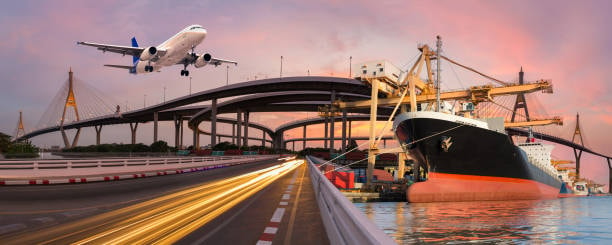
Finding an adequate freight forwarder is no easy task and only after analyzing several aspects that directly influence successful shipping methods, as well as the general work of any corporation, it is possible to choose the correct one. Experience in the industry must be another main factor since every industry requires its own set of needs, laws, and the way of handling the materials. The freight forwarders who know industry-related nuances better can deliver more appropriate solutions.
Another important slope is the geographic coverage which is vital especially to companies having products sent to various destinations or to new markets. The network strength of the freight forwarder in your target markets will have a direct impact on the quality of the services, transit time and possibility to solved problems. The formation of local partnerships as well as offices in the major markets usually show greater service capacities.
Vision and control of shipments have become very crucial in business as companies require to see more and trace their shipments. Booking, tracking, documentation management, and inter-integration of client systems are also to be provided with modern freight forwarders. The advanced analytics and the reporting capabilities assist businesses to improve their supply chain performance in the long term.
Banking security and insurance insure customers against possible losses or service breakdown. More valuable cargo is increased by established freight forwarders who have very well financial status and cover all kinds of insurance. Licensing and certifications show that the industry standard and regulatory requirements are met as well.
The breadth of a service portfolio will dictate whether one provider will be able to care of all the shipping needs or relations with several providers will be required. Full-service provisions, such as customs clearance, warehousing, and expertise handling services, are more convenient for single or multiple carriers and may result in the enhanced coordination between various logistics activities as well.
Common Challenges in Freight Forwarding and How They’re Addressed
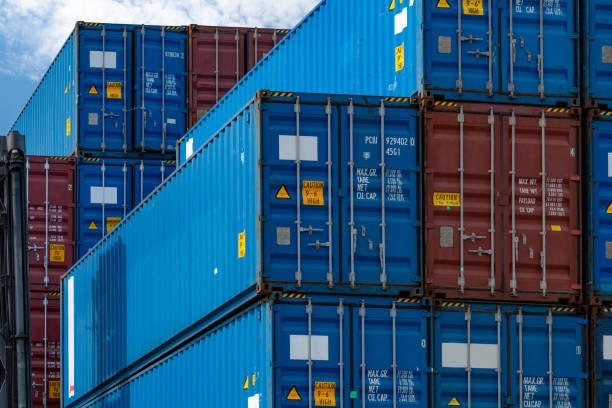
Freight forwarding is one of the businesses where there are various challenges that have to be combated by established players in the industry to provide quality services. Most of them are associated with regulatory complexity that is constantly changing and differs a lot among different countries. To keep up to date with the latest requirements, professional freight forwarders both spend considerable budgets on compliance training and monitoring systems and take steps to ensure this compliance in the shipments they make on behalf of clients.
Bottlenecks on the transport system may cause delays and fickle rates especially during peak shipping periods or in times when geopolitical incidences impede the usual directions of trade. Seasoned freight forwarders have arrangements with more than one carrier and devise decongestion plans to ensure the capacity constraints do not affect shipment of clients.
Documentation errors are a long-standing problem that may lead to postponement of customs or extra costs or a refusal of the shipment. Quality control measures and the utilization of technological solutions to reduce the number of erroneous documentation records and the achievement of perfection in all documentation forms and statements is an essential practice employed by professional freight forwarders.
The process of international shipments may be complicated due to communication barriers, especially when affected by several masses in various time zones and languages. Contemporary freight forwarders employ elaborate communications systems and they have multilingual employees to enable them communicate effectively during shipping.
Simple challenges of technology implementation can be noticed that businesses require to involve more automatization and connection of the systems. The top freight forwarders invest in new generation platform, which has the potential of being adapted to the client system but incorporates the flexibility of tackling the varying technological needs.
The Future of Freight Forwarding: Technology and Innovation
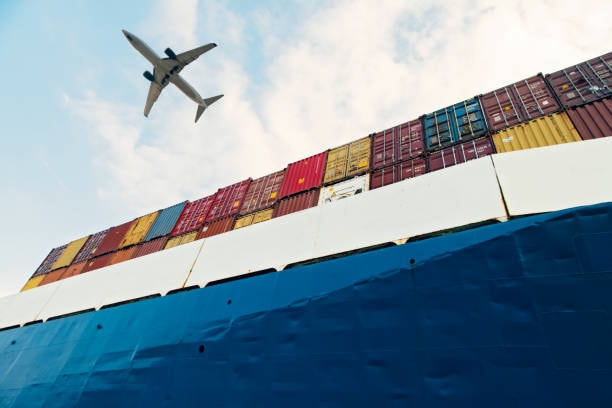
Technological advancement and expectations of the customers are some of the factors that keep freight forwarding industry evolving quickly. Digitalization has turned into a competitive advantage, with major providers spending ample sums of money on automation, artificial intelligence, and data insights functions. These technologies allow fairer pricing, enhanced route management, and forecasting, allowing to avoid future challenges, which may have an adverse effect on the delivery.
Blockchain technology has potential of enhancing the transparency of the supply chain and it is possible to minimize documentation fraud, and the Internet of Things (IoT) sensors offer real-time tracking of cargo information which will enhance security and proactive fixing of the problem. Machine learning models process past shipping data in an attempt to improve shipping route routing decisions and foresee any possible shipping delays or capacity issues.
The importance of sustainability concerns is also growing as companies dim their eyes on the environmental impact lessening. Freight forwarders are also coming up with green logistics that makes routing efficient and fuel-wise, encourages environmentally-friendly means of transportation and offers carbon reporting so that the companies can arrive at their environmental targets.
The rise in E-commerce has resulted in the need to develop new specialised forms of logistry that can cater to smaller more frequent products whilst still being cost effective. As these needs change, freight forwarders are evolving their modalities of service delivery to meet such demands but have been making use of technology to automate many of their routine activities giving them an overall edge in business operations.
The use of supply chain finance solutions is opening up new horizons in offering freight forwarders possibilities to add more value to their customers through the use of support in the payment industry segmentation and offering credit facilities through which international trade transactions can be financed.
Conclusion
Freight forwarders are almost becoming an inseparable aspect of international trade because they offer proficiency, facility and organization through the intricacies of international shipping. They are not engaged in basic coordination of transportation only, but they manage all logistic processes, they have to be in line with regulations, minimize risks and coordinate supply chains as well. In the case of companies involved in international business where quite often the work is carried by freight forwarder, cooperation with highly qualified companies such as GWT Worldwide allows providing a high level of efficiency of business, saving business expenses, and risks of international transportation.
The case of professional freight forwarding services is even clearer as companies lengthen their international scope and operate under a more tangled net of regulations. Using established freight forwarders to provide their logistics services offers businesses an opportunity to concentrate on their core business operations whilst having the confidence that their logistics services will only facilitate their corporate development aspirations.


Thank you for reading!
Have questions, corrections, or better ideas? We’d love to hear from you!
We value every piece of feedback and promise to reply within 24 hours. Let's make this guide better together!
Note: Spam comments will not be published.